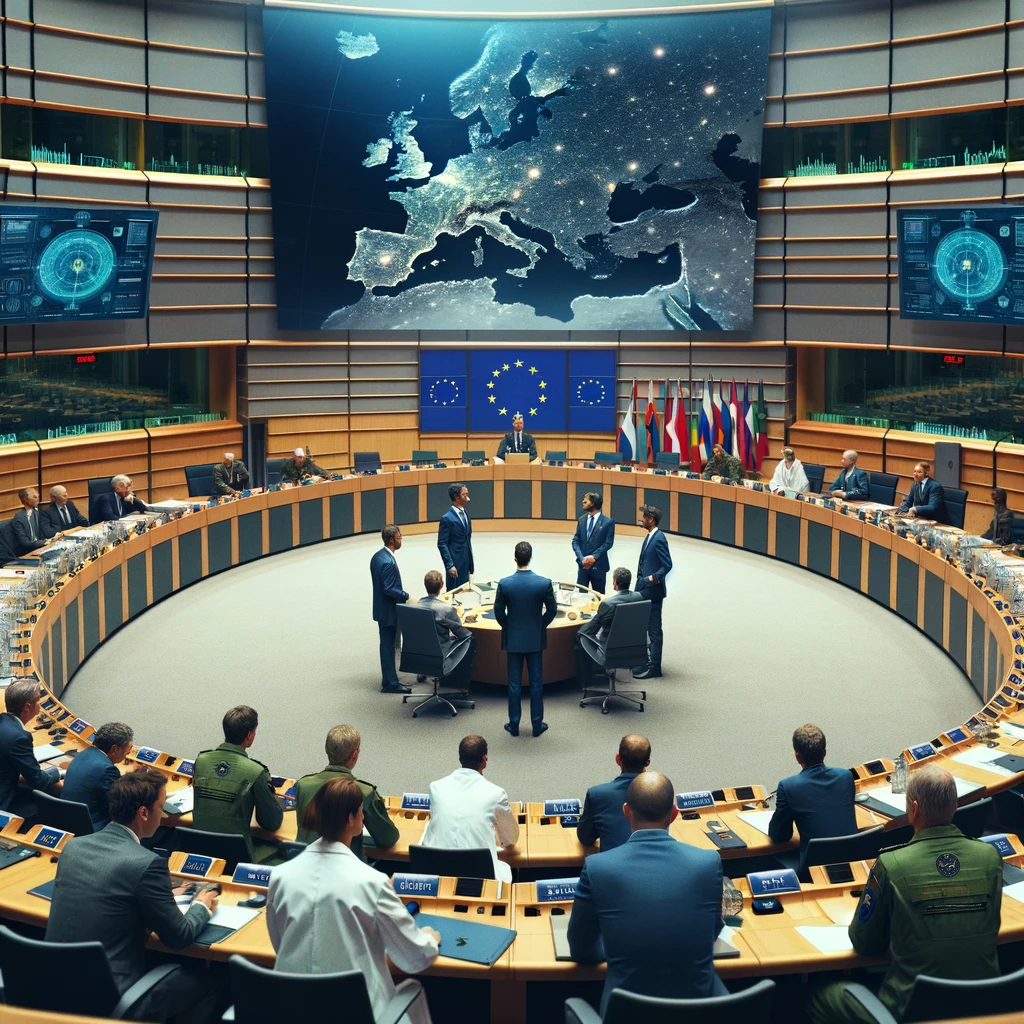A Scientific and Policy Dialogue on UAPs in the EU

The event “UAP: Reporting and scientific assessment in the EU. Exchange of views in the European Parliament” featured a range of speakers discussing various aspects of Unidentified Aerial Phenomena (UAP) from different perspectives. Francisco Guerreiro opened the event by emphasizing the importance of discussing UAP within the European Parliament and highlighted the need for scientific methods and public institution cooperation in the debates surrounding UAPs. He also stressed the necessity for transparency and data sharing within the EU regarding UAPs to maintain credibility among constituents.
Francisco Guerreiro is a Portuguese politician who has been serving as an independent Member of the European Parliament for Portugal. He was initially elected while standing as a candidate for People Animals Nature (PAN). In October 2021, Guerreiro announced his intention to run for Volt Portugal in the 2024 European Parliament Elections.
Next, Edoardo Russo provided historical context for UAP within the EU, pointing out that UAP sightings and testimonies are not only an American phenomenon but also have a rich history in Europe. He mentioned that there’s a significant portion of European populations that have reported seeing UAPs, but most witnesses do not report their sightings. He advocated for a more structured approach to collecting and analyzing UAP reports in Europe.
Edoardo Russo has been actively involved in various Italian UFO organizations and serves on the editorial board of several international UFO publications. As a field investigator and writer, he has authored hundreds of investigations on UFO sightings and numerous articles in Italian and international publications.
Next, Ryan Graves shared insights into US government developments concerning UAPs. As a former Navy pilot, he emphasized the daily occurrences of UAP encounters by military personnel, underscoring the need for a formalized reporting mechanism and the reduction of stigma around the topic to encourage more reports from credible sources like military and commercial pilots.
Next, André Jol provided an introduction to UAPs, discussing their significance and impact on airspace safety and security. He highlighted the importance of understanding UAP characteristics and the necessity for a supportive environment where professionals can share their experiences without fear of ridicule.
Dr. Beatriz Villarroel offered a scientific perspective on UAP, discussing the challenges faced by the scientific community due to stigma and the lack of concrete data. She highlighted ongoing efforts such as the Galileo Project and the importance of developing methodologies to detect and analyze UAPs systematically.
Dr. Beatriz Villarroel is an astronomer with notable contributions to the field of astrophysics and UAP (Unidentified Aerial Phenomena) research. She has been involved in various research roles, including a postdoctoral position at the Nordic Institute of Theoretical Physics (Stockholm University) and the Instituto de Astrofísica de Canarias. Dr. Villarroel has also worked at the Department of Information Technology at Uppsala University. She has been actively engaged in projects that explore astronomical phenomena, including the study of vanishing stars and other anomalies that may suggest non-terrestrial origins.
Dr. Villarroel has been recognized for her work with an award from the L’Oréal-Unesco Prize for Women in Science. She leads the VASCO project, which focuses on Vanishing and Appearing Sources during a Century of Observations, aiming to identify and understand unexplained astronomical events. Her work extends into the search for extraterrestrial intelligence (SETI) and the examination of potential artificial objects of non-terrestrial origin through projects like EXOPROBE.
Next, Christiaan Van Heijst shared his experiences as a commercial pilot encountering UAPs, emphasizing the need for a platform where pilots can report UAP sightings without repercussions. He highlighted the importance of distinguishing between conventional sightings and those that cannot be easily explained, advocating for serious consideration of pilot reports in UAP research.
The event underscored the importance of a multidisciplinary approach to UAP research, involving cooperation between public institutions, the scientific community, and professionals with firsthand experiences. The discussions pointed towards the need for a structured system for reporting, analyzing, and sharing data on UAPs within the EU to address both the safety and security implications of the phenomenon and to foster a more open and informed public dialogue.

